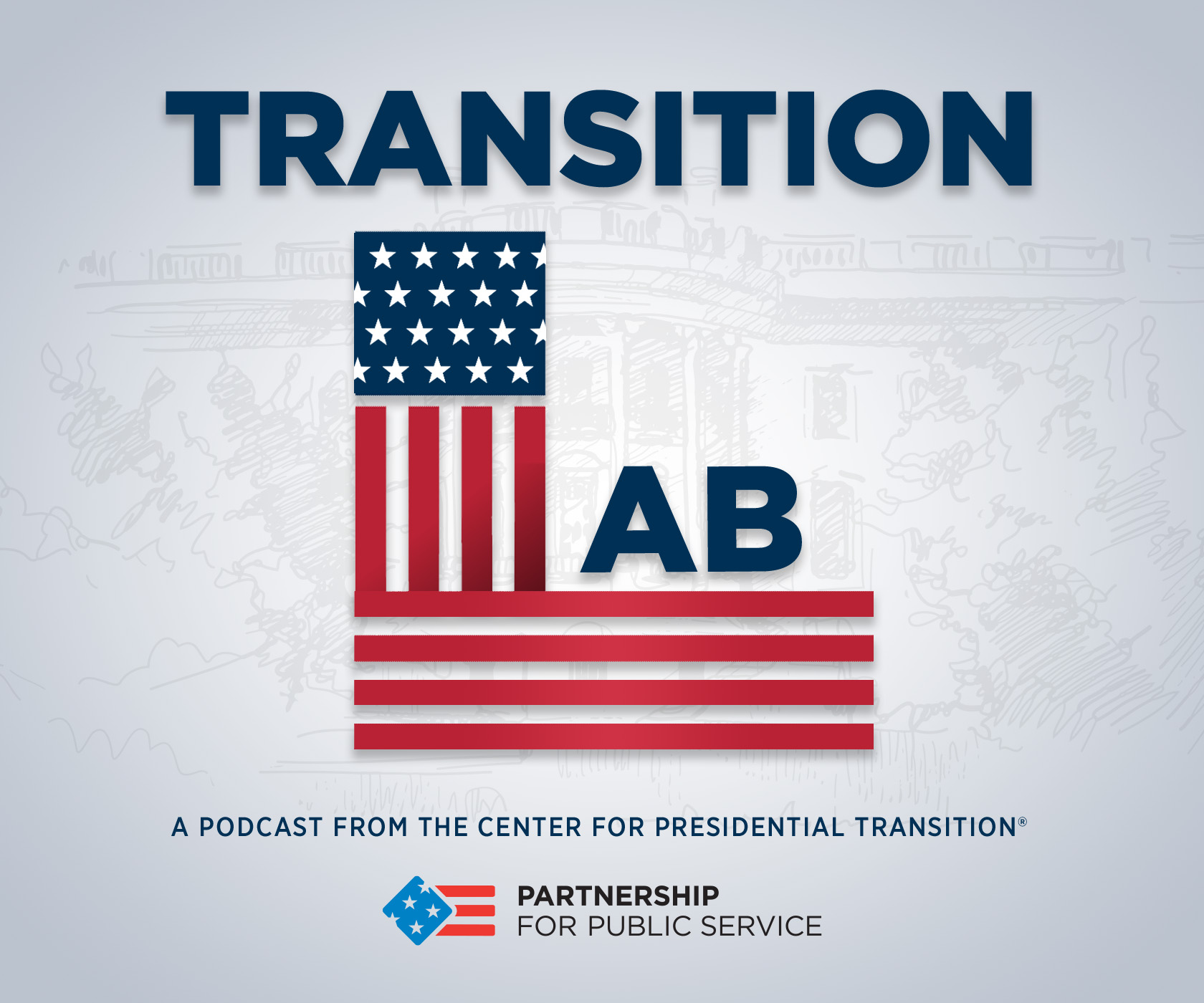Ready to Serve: Prospective Appointees
Is a Political Appointment Right for You?
Serving as a political appointee is a great honor. It also comes with the important responsibility of meeting the highest standards of integrity. Get the information you need here about the commitments required to hold a politically appointed position in the federal government. Consider the obligations and make your decision.
For more information and resources on the standards all federal leaders need to meet, see the Partnership’s Public Service Leadership Model.
What to Consider
As a political appointee, you will be associating yourself with the individual who is serving as president. You should be aligned with the goals of the administration so that you are comfortable in a leadership role. The White House or presidential transition team may ask you for evidence of your support for the president or candidate.
Presidential appointees represent the public, take an oath to defend the Constitution and are stewards of taxpayer resources. For appointees to carry out their roles, they need a deep-rooted service orientation and a commitment to the public good. For more information on the values and the competencies needed for effective federal leadership see the Partnership’s Public Service Leadership Model.
Federal officials operate in a highly structured environment with rules concerning acquisition, personnel and other operations. For example, senior-level executives may not be able to bring their teams with them. And the Hatch Act limits the political activities of federal employees while they are in office.
The White House or presidential transition team will examine your background to uncover any financial, employment or security issues that might prevent you from serving. For the most senior positions, this process can play out publicly in the media.
To see the types of questions you can expect during the vetting process, review this draft checklist. Answering ‘yes’ to some of these questions may not necessarily preclude you from serving. Rather, the disclosures may identify potential complications that need to be explained in greater detail.
If you have complex finances, you may have to make changes, sometimes at a cost, to your personal financial holdings to avoid conflicts of interest.
Especially for senior-level positions, the appointment process can be lengthy, requiring months of waiting and answering follow-up questions. You will need to be patient and possibly delay major life decisions until you are confirmed in your position.
You may be restricted in the types of activities that you undertake in future nongovernment jobs. Review the post-employment ethics restrictions for political appointees as well as the incoming administration’s ethics pledge to see if you are comfortable with the restrictions that may be temporarily in place.
Ready to Serve® Personal Assessment
Serving as a presidential appointee is an honor. You will have the opportunity to serve your country and work on some of the most important issues of the day. You will also gain experience working with career public servants, talented and committed people in the administration, Congress and others.
However, it is also a major life decision and comes with responsibilities. Here are questions to help you assess if a presidential appointment is a good fit for you at this time in your career.
Readiness
- Am I committed to public service?
- Am I prepared to take an oath to uphold the Constitution and put the public interest above my own?
- Am I ready to represent the values, vision and policies of the president?
- Am I comfortable being in a position serving at the pleasure of the president?
- Am I prepared to persist through a rigorous selection process?
Personal
- Do I have the level of integrity needed to become a steward of the public trust?
- Am I qualified for the role?
- Am I committed to handling the workload?
- Am I prepared to deal with the scrutiny of being a public official, with elements of my private life shared with the public?
Family
- How can my family support me during my service?
- Will my family be subjected to unwanted scrutiny?
- Am I prepared to disclose financial and employment information about my spouse and dependent children?
- Will my spouse’s current job pose a conflict of interest with my government role?
- What issues should I consider regarding relocation? (e.g., costs, temporary separation from family)
Pre- and Post-Service Obligations
- Am I prepared to commit to the Trump administration’s ethics pledge, as well as the ethics restrictions that will apply to my executive branch role?
- How will these restrictions impact my future employment opportunities? Will they temporarily preclude me from advising clients in my area of expertise, lobbying, working for a contractor or being employed overseas?
- How will these restrictions impact my future earning potential?
Team
- Who will I work for? Who else will I have the opportunity to work with?
- What happens if my boss leaves?
- Can I bring my own team to the organization, such as a chief of staff or public affairs person?
Financial
- Am I satisfied with the compensation of a federal employee?
- Would I be comfortable divesting any of my assets to avoid a conflict of interest?
- If I have complicated financial holdings, can I afford or am I willing to pay for the costs of serving, such as hiring an attorney or an accountant to navigate the vetting process?
Benefits
- What will serving my country mean to me personally?
- What skills and experience will I gain by serving in the administration?
- What do people in my position typically do after their public service?
- What will I learn through this experience?


